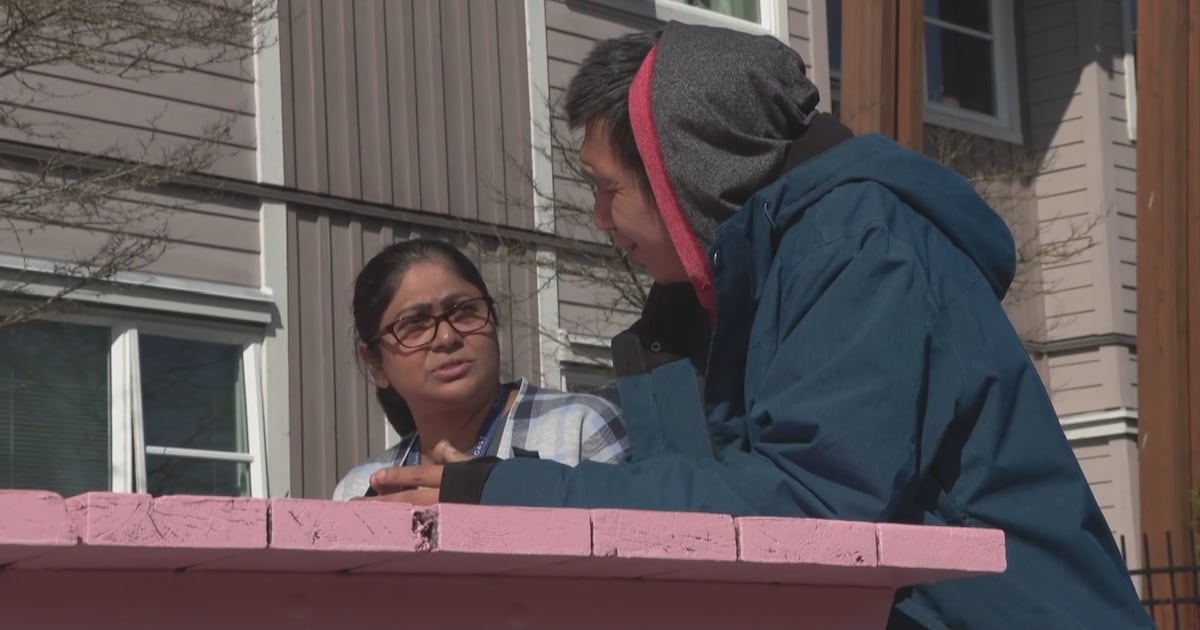Top Stories
British Columbia Embraces Relapse in Drug Recovery Framework

URGENT UPDATE: British Columbia is revolutionizing its approach to drug recovery, officially normalizing relapse as part of the treatment process. This groundbreaking shift, just announced by health officials, acknowledges the reality of addiction and the need for supportive housing to aid recovery.
New reports confirm that the province will phase out outdated drug treatment models, recognizing that traditional “zero tolerance” policies have proven ineffective and potentially harmful. This transformation is backed by insights from the scientific community and individuals with lived experiences, underscoring a more compassionate and pragmatic approach to addiction treatment.
In British Columbia, supportive housing is primarily managed by third-party non-profit organizations funded by the provincial government. These facilities not only subsidize resident rent but also offer critical programming, including group counseling and life skills training. Many residents enter these programs after experiencing homelessness, signaling a vital connection between stable housing and successful recovery.
Keir MacDonald, CEO of Coast Mental Health, emphasized the importance of post-treatment support: “Recovery does not end when you are discharged from a treatment program. This is the most vulnerable time for many people.” He added that a stable living environment can significantly impact a recovering individual’s trajectory.
The new philosophy recognizes that relapse is expected in the recovery journey. When asked about zero-tolerance policies, MacDonald stated that the focus has shifted to understanding triggers and the circumstances surrounding drug use. “Substance use disorder is a chronically relapsing condition,” he explained. “It shouldn’t mean a loss of your housing or your community.”
Statistics reveal that inpatient drug treatment programs in the region typically last between 30 to 90 days. The transition back into everyday life can be challenging, especially for those returning to environments where drug use was prevalent. Miranda Compton, executive director at Vancouver Coastal Health, highlighted the deadly risks associated with relapse, noting, “We are building a system where people are welcome to come back as many times as it takes.”
The complexities of recovery are illustrated through the experiences of Guy Felicella, a prominent advocate for harm reduction in British Columbia. Felicella, who has transformed his life after overcoming addiction and homelessness, pointed out that the simplistic view of treatment as a cure is misleading. “I got off drugs all the time, but I needed clinical counseling to address how I viewed myself,” he shared.
With a growing awareness of the challenges faced by those in recovery, the province’s updated framework aims to foster understanding and support for individuals who may stumble during their healing process. Felicella urges community members and employers to be more empathetic, stating, “There’s a tremendous amount of shame that comes with relapse. We don’t need to be beating up on people when they’re already beating up on themselves.”
As British Columbia moves forward with these vital changes, the emphasis on supportive housing and acceptance of relapse marks a significant step in addressing the ongoing addiction crisis. This is the fifth installment in a series exploring the province’s evolving response to addiction and the toxic drug crisis, revealing a commitment to more humane and effective treatment methods.
Residents and advocates alike are encouraged to engage with these developments, as the province continues to refine its approach to combating addiction. The urgent message is clear: recovery is a journey that requires community support, understanding, and a safe place to call home.
-

 Politics4 weeks ago
Politics4 weeks agoSecwepemc First Nation Seeks Aboriginal Title Over Kamloops Area
-

 World5 months ago
World5 months agoScientists Unearth Ancient Antarctic Ice to Unlock Climate Secrets
-

 Entertainment5 months ago
Entertainment5 months agoTrump and McCormick to Announce $70 Billion Energy Investments
-

 Science5 months ago
Science5 months agoFour Astronauts Return to Earth After International Space Station Mission
-

 Lifestyle5 months ago
Lifestyle5 months agoTransLink Launches Food Truck Program to Boost Revenue in Vancouver
-

 Technology3 months ago
Technology3 months agoApple Notes Enhances Functionality with Markdown Support in macOS 26
-

 Lifestyle3 months ago
Lifestyle3 months agoManitoba’s Burger Champion Shines Again Amid Dining Innovations
-

 Top Stories2 months ago
Top Stories2 months agoUrgent Update: Fatal Crash on Highway 99 Claims Life of Pitt Meadows Man
-

 Politics4 months ago
Politics4 months agoUkrainian Tennis Star Elina Svitolina Faces Death Threats Online
-

 Sports5 months ago
Sports5 months agoSearch Underway for Missing Hunter Amid Hokkaido Bear Emergency
-

 Politics5 months ago
Politics5 months agoCarney Engages First Nations Leaders at Development Law Summit
-

 Technology5 months ago
Technology5 months agoFrosthaven Launches Early Access on July 31, 2025



















